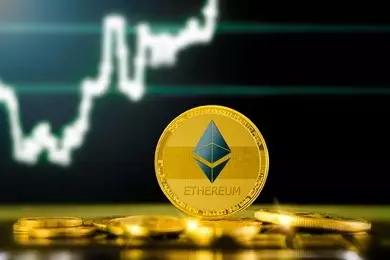Ethereum (ETH) recently underwent a significant software upgrade named Dencun, aimed at improving the efficiency and cost-effectiveness of the network ecosystem. This upgrade, particularly focused on Layer 2 (L2) networks like Arbitrum, Polygon, and Coinbase’s Base, has resulted in a substantial reduction in transaction fees, making it more affordable for users to interact with the Ethereum network.
With the implementation of Dencun, users on Layer 2 networks have witnessed a drastic decrease in transaction costs, with fees plummeting from dollars to mere cents or even fractions of a cent. This reduction in expenses is expected to have a profound impact on the development of new applications and services within the Ethereum ecosystem. The key highlight of this upgrade lies in its effect on decentralized exchanges (DEXs) and gas costs.
The Impact on Gas Costs
One of the most noticeable advantages of the Dencun upgrade is the significant reduction in gas costs for popular Layer 2 networks such as Arbitrum, Optimism, and Coinbase’s Base. The expected savings translate into a substantial decrease in the cost of swaps on these networks, with Arbitrum’s swaps projected to drop from $2.02 to $0.40, Optimism’s swaps from $1.42 to $0.28, and Coinbase’s Base swaps from $0.58 to $0.01. This reduction in gas costs underscores the pivotal role that the Dencun upgrade plays in enhancing the user experience on these networks.
The Dencun upgrade introduces a new data storage system that deviates from the traditional method of storing Layer 2 data on Ethereum itself. By adopting a new “blobs” repository, data storage costs are significantly reduced since information is only retained for a limited period of around 18 days, rather than indefinitely. This change not only enhances efficiency but also addresses congestion concerns by freeing up more space on the Ethereum network for additional transactions.
Insights from the Upgrade Process
Layer 2 network Arbitrum has provided valuable insights into the upgrade process, highlighting that it may take up to one to two hours for blob transactions to begin posting and for the new pricing changes specified by EIP-4844 to take effect. The ArbOS Atlas upgrade, which supports Arbitrum Chains, will bring further fee reductions for Arbitrum One, set to be activated on March 18th. These updated configurations include reductions in both the Layer 1 surplus fee and the L2 base fee, ultimately leading to a more cost-effective network experience for users.
Despite the successful implementation of the Dencun upgrade, Ethereum’s price has remained relatively unaffected, consolidating below the $4,000 threshold. While the token has made attempts to surpass this crucial resistance level, it has struggled to maintain its position above it. Despite this, ETH has demonstrated an upward momentum, with gains exceeding 18% over the past fourteen days and nearly 60% over the past thirty days.
The Dencun upgrade represents a significant milestone in the evolution of Ethereum’s network ecosystem, particularly for Layer 2 networks. By reducing transaction fees, enhancing efficiency, and addressing congestion concerns, this upgrade is poised to drive increased demand for ETH and potentially pave the way for a renewed uptrend in its price. As Layer 2 networks embrace these changes, the stage is set for accelerated adoption, usage, and broader accessibility within the Ethereum community.

